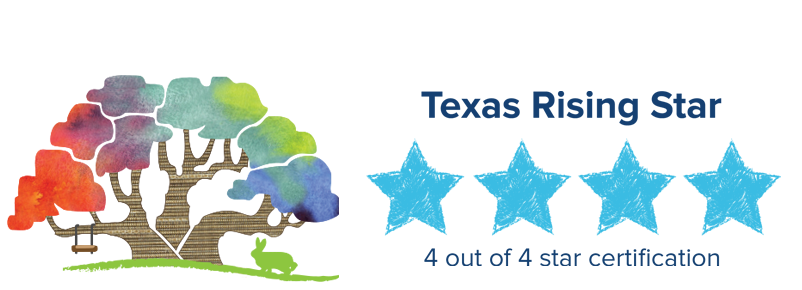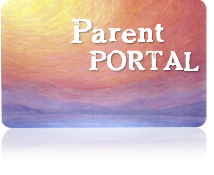General FAQ's
In the early 1900s, there was sentiment that the innocence of childhood must be preserved. A whole person should not only devote himself to academic pursuits, but cultural ones as well, including art, music, physical movement, and social responsibility. German philosopher Rudolf Steiner opened the first Waldorf school in 1919 in the plant at the Waldorf-Astoria cigarette factory in Stuttgart, Germany, at the request of the plant’s owner. Waldorf education holds that a school is an organic mix of children and their teachers, who should lend their individual talents to the school. Additionally, Waldorf education prescribes that in the first seven years of life, children learn by observing and imitating the work of adults and peers. In providing real-life materials as well as open-ended props to support imaginative play, the child is able to recreate that is within him—be it something observed or something imagined.
In the work of Rudolf Steiner, it is clear that the child is not seen as an empty vessel, waiting to be filled with by an adult with knowledge. Instead, Steiner saw children as brilliant, capable, and innocent. Surrounded by beautiful things and given opportunities by loving teachers, children make meaning in great ways. We agree.
To borrow from Waldorf education, play with open-ended materials will be a highly valued part of the day at The Good Earth Farm School. Such play allows children to imitate what they have learned about the world and to express their active imaginations. Special attention is placed in surrounding the children with beautiful, natural, and interesting toys and materials that they may use in their play.
Click Here to read about The Good Earth Farm School’s Program.
Lifeways North America is considered the early childhood education component of Waldorf education as traditional Waldorf schools do not provide care to children under 3 years of age. Click Here to Read More about Lifeways North America
In Montessori, there is a feeling that young children have difficulty distinguishing
between reality and fantasy, and therefore fantasy should be postponed until the child is
firmly grounded in reality. The tasks and activities the children do are reality oriented.
Montessori said that it is a mistake for children to amuse themselves with toys, that
children are not really interested in toys for long without the real intellectual interest of
associating them with sizes and numbers. In Montessori, each manipulative material is
focused toward a specific learning concept and has a step-by-step procedure for being
used. Math counting rods, for example, are not to be transformed into castle walls.
In Waldorf philosophy, play is viewed as the work of the young child. The magic of
fantasy, which is so alive in every young child, is an integral part of how the teacher
works with the child. The teacher incorporates storytelling and fantasy into the
curriculum.
In Waldorf, we feel that it is essential to realize the value of toys to help children to
re-enact experiences from life as they actually happen. The less finished and the more
suggestive a toy may be, the greater its educational value, for it really enlivens the
imaginative life of the child. So toys in the Waldorf kindergarten may be rounds of wood
cut from birch logs, seashells, lengths of colored silk or cotton for costuming or house
building, soft cloth dolls with a minimum of detail in faces or clothing, etc., allowing for
open-ended imaginative play.
Our school does not focus on nor give preference for any one religion or culture, instead we take our cues from Mother Nature.
Our days on the farm are designed to create a balance between free, creative play and more structured activities. Our daily and weekly rhythms focus on the following activities and are designed to coordinate with our nature based themes of the changing seasons.
Creative Arts: Crafting, painting, drawing, seasonal crafts, music, singing.
Domestic Arts: cooking, cleaning, sewing, woodworking, repairing, gardening and caring for animals.
Nurturing Arts: Natural foods, hair brushing/combing with lavender spray, hand/face washing, meals with flannel cloth napkins, daily outdoor time and rest.
Social Arts: empathy, kindness, sharing, leadership, conflict resolution and love.
Click here to read more about our curriculum and the Rhythm of our days.
You may call or email the Director to request drop-in days. If space is available, the days needed will be reserved for your child. Fees are for drop-in care are billed with the next month’s tuition. Drop-ins may be cancelled with out financial penalty to a family.
No, unfortunately it would be impossible to offer make up days for all of our students in a fair manner and would be difficult to monitor. We often serve almost 100 students weekly with part-time schedules!
Yes, conferences may be requested at any time. We offer all families a conference with their child’s lead teacher each Fall and then have a portfolio review in May each year. Similarly, at any time, our teachers may request a conference with you to offer ideas, here more about home life, or to work on ideas to manage a challenging behavior.
Yes, our lead teachers complete a developmental assessment that is updated frequently throughout the year. The assessment is shared with you at conferences, and travels with your child from lead teacher to lead teacher as your child makes their way through our program. If ever we see that a child needs further professional assessment (speech, hearing, vision, occupational, or physical therapy, etc), we request a conference and make this recommendation to you. We are not experts in early childhood exceptionalism, and greatly appreciate another professional opinion when we note that a child is not reaching an important developmental milestone.
Good Earth routinely has students who are diagnosed with a variety of special needs. A child’s therapists are welcome to observe a student they are working with at Good Earth, and can offer tips to our teaching staff to foster growth. While we do not employ trained special needs support staff, we are happy to consider new students with special needs provided our group setting is appropriate for the student in question and provided that we can well serve the class as a whole. It is also critical that any student who attends Good Earth can be kept safe in our outdoor environment.
Families must give a minimum of 30 days notice to withdrawal from Good Earth, no later that the last day of the child’s next to last month.
Kindergarten Program FAQ's
While developing the curriculum we have referred to the standards and curriculum of the Leander Independent school district so that children should be able to seamlessly transition from this program to another environment. LISD policy currently dictates that grade placement is at the discretion of the school principal but a portfolio of work and/or age are often utilized to determine placement.
Our school will observe major holidays in conjunction with the LISD calendar and a listing of all observances and closures will be available prior to the start of the school year.
We are currently not trained in special education but are happy to work with parents and have therapists attend onsite to facilitate the learning process for those with special needs.
Conferences will be conducted twice a year to report your child’s progress and the teacher will request a conference if any special concerns arise throughout the year.
Children work on potty learning as part of their time in the Saplings/Sprouts program. Typically, most of our students potty train between 2 1/2 and 3 1/2 years of age. They may remain in the Saplings/Sprouts program until they are comfortable using the potty, always with teacher support, and ready to move to the Treehouse.
Yes, we are happy to use cloth diapers. Please have the diapers folded and ready to use, with any required liners applied. Parents must supply a wet bag for soiled diapers. The bag must have a zip or snap closure.
Good Earth provides rest mats, sanitized daily, for all of our students who stay after 1 pm. While little ones do often have a period of adjustment to resting away from home, staying on a rest mat once asleep is not a problem. In fact, many of our youngest students are so tired at nap time after a full day, they go to sleep as soon as they are cleaned up from lunch! Parents provide a standard crib sheet and blanket, and children may bring a pacifier and small lovey/stuffed animal as needed. All nap linens are sent home to launder weekly. Nap rolls may also be used, but can be cumbersome to wash each week.




